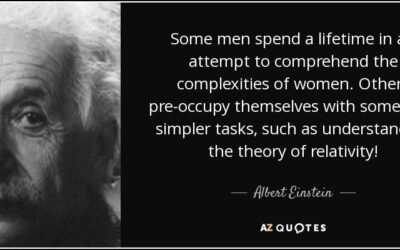Introduction: The Tiny Text That Launched a Thousand Overthoughts
It always starts innocently enough. A man types:
“Hey, busy? :)”
To him, those four words carry the weight of a goldfish: light, forgettable, and perhaps already erased from memory the second he hits send but not for the epic “female overanalysis.”
To her, however, this is not a text. This is an epic tale waiting to be decoded. A map of his subconscious intentions. A hidden confessional disguised as a casual ping. A cryptic prophecy that requires the analysis of fifteen trusted girlfriends, three Reddit threads, and two hours of anxious pacing.
This, ladies and gentlemen (and those brave enough to enter the battlefield of modern dating), is female overanalysis in its most dazzling and devastating form.
Like Shakespeare’s Juliet misreading every pause of Romeo’s lips, modern women often find themselves casting dramatic monologues over the smallest text bubble. What could have been a simple conversation turns instead into a three-act play of hope, tragedy, comedy, and slow emotional torture – sometimes all within a single evening.
Let us, therefore, examine why female overanalysis exists, how it flourishes, and why it so often ends with ice cream therapy.
The Anatomy of Female Overanalysis
1. The Trigger: A Simple Text
Texts today are the love letters of our era. Except, unlike love letters, they come stripped of body language, tone, and timing. No scent of perfume pressed into the page, no nostalgia of postage stamps. Just a sterile ping and a blinking bubble.
And into that vacuum of context flows interpretation. A single “k” can feel like an execution order. Three dots left hanging … a betrayal. The missing emoji? Proof of emotional detachment. The slightly delayed reply? Evidence of infidelity.
Where men see communication, women often see interpretation.
2. Act One: The Hermeneutics of Punctuation
Much of female overanalysis rests on the weight of punctuation – a science so refined it deserves its own university course.
- “Okay.” vs. “Okay” – Is the period passive-aggressive? Cold? Dismissive?
- “Sure!” – Too cheerful. Fake cheerful. He’s hiding something.
- “…” – Is he still typing? Did he decide against sending it? Is he dead?
The absence or presence of a single colon can alter the trajectory of her entire emotional day.
3. Act Two: The Performance of Delay
The time between “seen” and “reply” is perhaps the most scrutinized dimension of female overanalysis.
- 30 seconds: He’s eager. Maybe too eager. Red flag?
- 5 minutes: Casual. Relaxed. Okay, he’s normal.
- 30 minutes: He’s losing interest.
- 2 hours: He’s cheating. Definitely cheating.
Meanwhile, his explanation: “I was in the shower.”
4. Act Three: Consulting the Oracle (Friends, Screenshots, and Forums)
The modern woman rarely overanalyzes alone. She recruits her council of sisters, the WhatsApp group chat of trusted advisors.
Like Macbeth consulting the witches, she dispatches screenshots:
“Ladies, he said ‘Let’s hang sometime.’ Does that mean Friday or never?”
“Notice he used ‘sometime.’ That’s vague. Non-committal. A loophole!”
“But there’s a smiley. Maybe he does want to meet.”
By the end, the message thread looks more like the Dead Sea Scrolls than casual dating.
5. The Tragedy: Emotional Spiral
Inevitably, female overanalysis leads to exaggerated conclusions. A man’s casual “Hey” mutates into a full-blown Hamletian soliloquy:
- Does he still love me?
- Is he falling for someone else?
- Was my reply too fast?
- Should I have used the laughing emoji with the tilted tears instead of the straight ones?
Thus, a text bubble becomes the battlefield of imagined betrayals.
Why Female Overanalysis Happens (Psychological Roots)
Evolutionary Psychology
Human communication evolved in face-to-face settings. Subtle cues like tone, body posture, and microexpressions carried meaning. Women, wired for relational nuance over thousands of years, developed heightened sensitivity to social cues – a survival trait in both tribal alliances and family systems.

Texts demolish those cues, leaving a void. And nature abhors a vacuum.
The result? Interpretation gone berserk.
Cultural Conditioning
Romantic comedies and literature have planted a deep seed of expectation: The idea that every pause, every silence, every “wrong number” text hides fate’s grand design. Decoding minutiae is not neurosis; it’s the script of love itself.
Juliet did it. Elizabeth Bennet did it. Every Bollywood heroine with a thumka and a sidelong glance does it.
So modern women are simply following tradition—except now Juliet gets “snapped on delivered” instead of a balcony scene.
Social Media Fuel
Female overanalysis thrives in the digital age for one simple reason: unlimited access to mixed signals.
Instagram likes, heart reacts on stories, profile bio edits, Spotify playlists with cryptic titles – all of these become fertile ground for philosophical speculation.
Where her grandmother might have worried about a husband’s faraway look at dinner, she now interprets why he liked his coworker’s poolside selfie at 2 a.m.
Gender Communication Gaps
Psychological studies show men often communicate with instrumental clarity (“Meet me at 7”), while women lean toward expressive nuance (“I feel like tonight could be cozy”).
Thus, men see texts as logistics; women see them as emotional landscapes.
That disconnect is the breeding ground of endless analysis.
The Shakespearean Drama of Text Analysis
To truly capture the spirit, let us recast an ordinary conversation as though Shakespeare himself directed it:
Man: “Hey, what’s up?”
Woman (internal monologue): What dost thou mean by ‘up’? Is it my fortunes? My spirits? My destiny? Perchance, dost thou refer to our love’s potential ascent—or cruel downfall? Oh cruel brevity of man’s reply, that leaves my soul in torment!
This is the core of female overanalysis. What was meant as a napkin sketch becomes interpreted as a fresco on the Sistine Chapel.
Is Female Overanalysis Always Bad?
Here’s the twist: Female overanalysis, despite its comic exaggeration, serves certain purposes.
Strengths of Female Overanalysis
- Emotional attentiveness: Women often detect early signs of disinterest or dishonesty sooner than men.
- Bond strengthening: Discussing texts with friends builds solidarity and female camaraderie.
- Romantic depth: The ability to seek meaning fuels the passion and imagination that enrich relationships.
Downsides of Female Overanalysis
- Anxiety and exhaustion: Constant decoding creates emotional fatigue.
- Misinterpretations: Innocuous actions are seen as betrayals.
- Communication breakdown: Instead of direct conversation, hidden assumptions build walls.
In short, female overanalysis is both the blessing and curse of relational sensitivity.
How to Escape the Shakespearean Spiral?
1. Ask, Don’t Assume
The antidote to three hours of WhatsApp dissection? A 20-second direct question.
Instead of: “He took 47 minutes to reply, he must hate me.”
Say: “Hey, were you busy earlier?”
2. Reframe Delay
Remember: people have jobs, families, showers, and traffic jams. The world does not spin around text bubbles.
3. Practice Digital Minimalism
Sometimes disengaging from constant checking saves sanity. Turn off read receipts. Silence the “typing” bubbles. Stop treating him like a full-time project.
4. Humor Therapy
Every time you spiral, rewrite the situation as a Shakespearean parody. Laughter dissolves anxiety’s grip.
5. Shift Perspective
Men are usually literal with texts. Assume the simplest meaning unless proven otherwise.
Conclusion: The Comedy and Tragedy of Female Overanalysis
Female overanalysis is less about madness than it is about desire for connection. It reveals the wish for clarity, consistency, and emotional security in an era where communication comes stripped of human warmth.
Yes, women dramatize tiny bubbles into grand tragedies. Yes, a missing emoji becomes a battlefield. But isn’t that also the charm? Isn’t the overthinking just another expression of investment, passion, and the timeless yearning to decode love?
In the end, texts may be fleeting, but emotions remain profound. And if sometimes a “k” becomes the opening line of Hamlet’s soliloquy, maybe that only proves one thing: love, even in the digital age, will always feel theatrical.
So perhaps the next time a woman sits staring at her phone, wondering why “seen 3:45pm” could mean the collapse of civilization, we should not mock. Instead, we salute the eternal poetic instinct at play. After all, Shakespeare himself would have killed for such an audience.
Disclaimer: This is just a thoughtful analysis drawn from my own experiences. It does not surmount to be “feminist” or addressing “gender inequality” in any manner whatsoever!





0 Comments